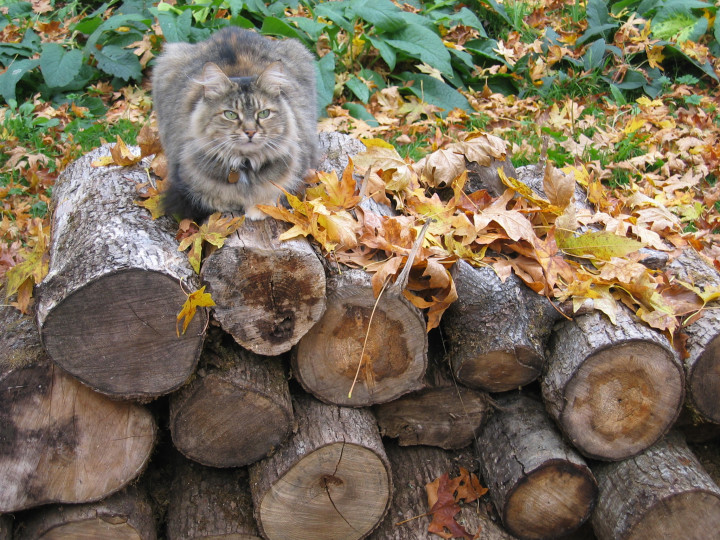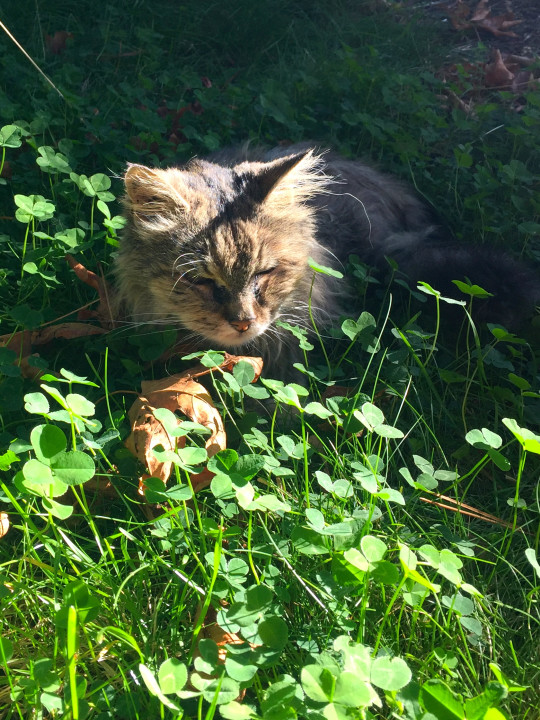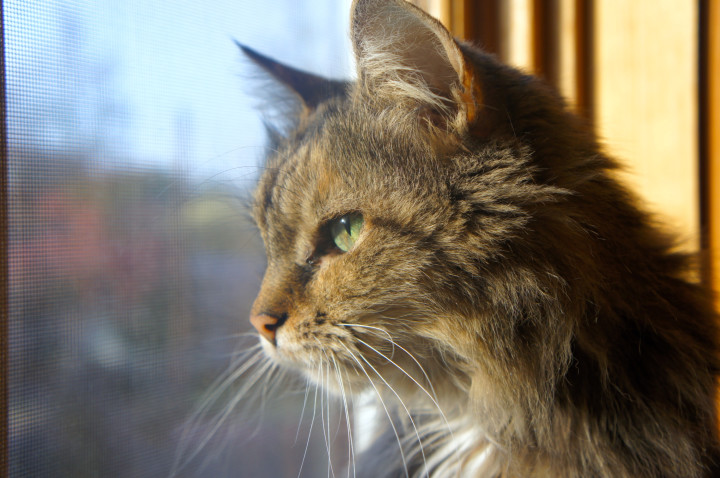Today is one of those days she would have loved. This morning, hard rain washed over the whole world; and, now, the sun shines steadfastly in a blue sky skimmed with fast-moving autumn clouds. She would have asked to go outside, standing patiently by the back door and turning to look at me. Five minutes later, she probably would have stood on the other side of the glass and asked to come back in, maybe meowing or even tapping her paw on the glass. Unless it was one of those days when she lifted her small, orange, dark-rimmed nose to the sun and closed her eyes and realized that she might want to nestle down in the damp grass, like a wild animal. I would have found her there, hours later, fast asleep and oblivious to me, curled up like a fox with her tail over her nose.
My Tephra. The thing about grief is that it feels so profound, so singular. My experience, of losing a cat who’d been part of my family for 18 years—longer than my marriage, older by 7 years than my oldest child—is hardly exceptional. Every day, people lose family members, pets, and pets who’ve become family members. That is life; it is paired with death. None of us escapes.
But I hadn’t lost Tephra. Not until last week. To me, she was singular, exceptional. Her death is profound.
Now, I walk around this house, which is deeply empty except for me, and I catch Tephra in everything. Anything cat-sized near the floor fools my eye. The laundry basket at the top of the stairs, the compost bucket just outside the back door, the pile of clothes left just outside the shower—I look again, then I feel my heart fall. They are just the laundry basket, the compost bucket, and the pile of clothes. They will never again be Tephra, ready for a scratch behind the ears or a long pet down her silky back.
I return to my desk and watch the clouds skidding across the fall sky, Tephra’s hair still stuck in the window screen. I tilt my face to the sun, and I close my eyes and sob.



ditto